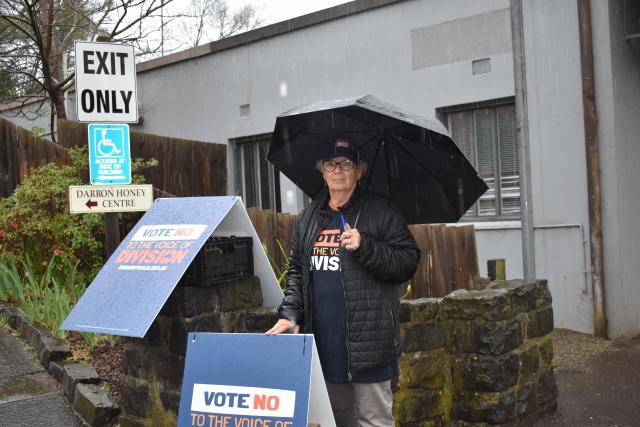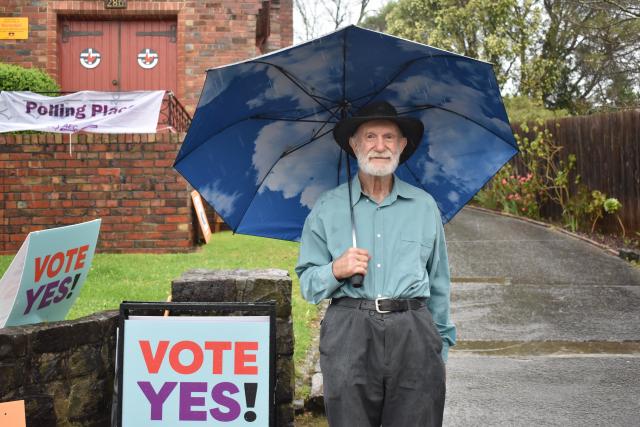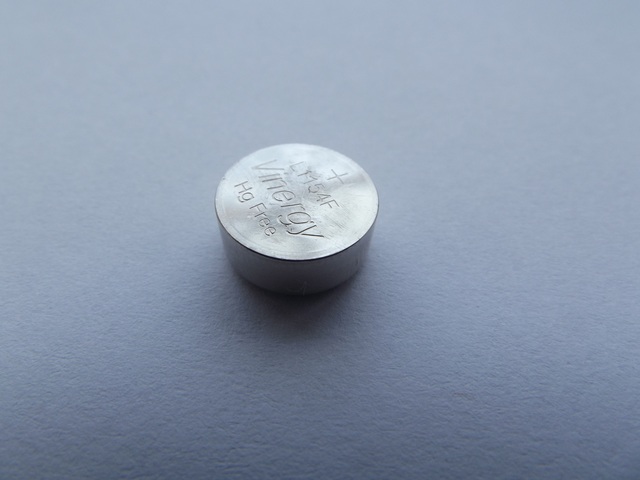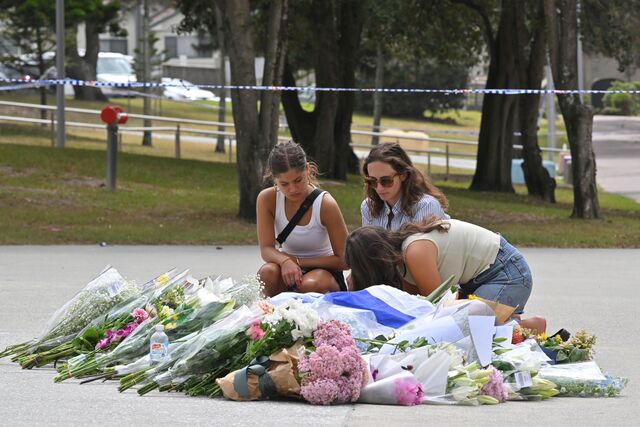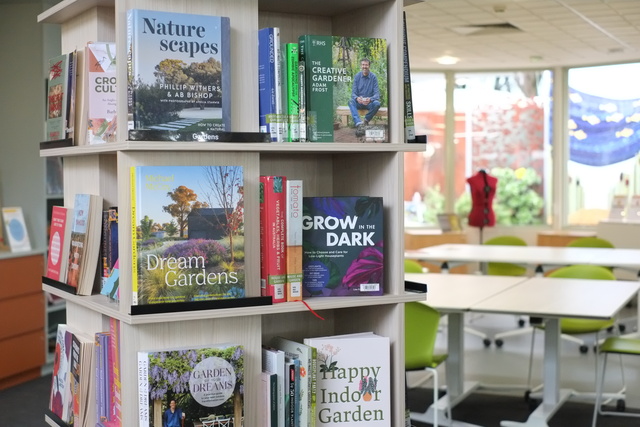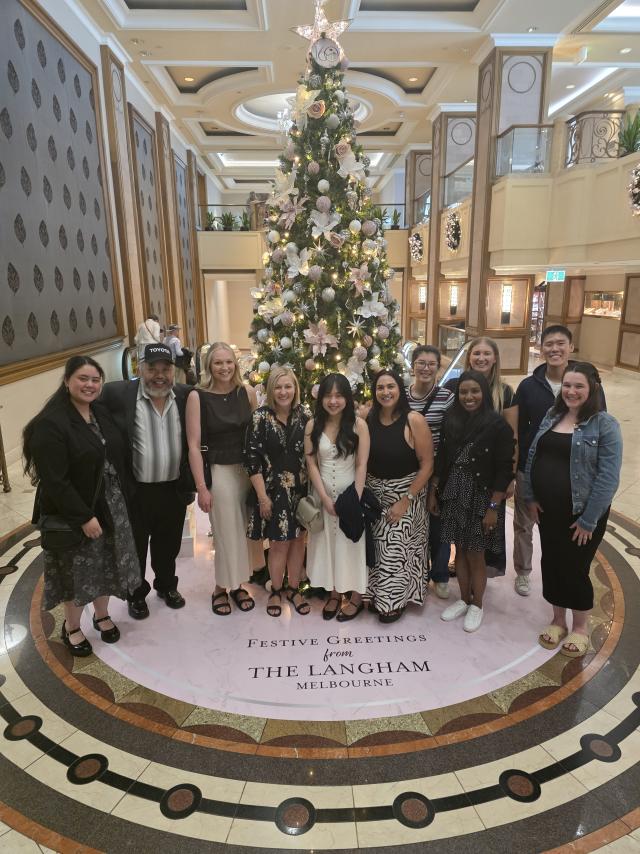With early voting for the referendum on the Indigenous Voice to Parliament having opened, campaigners for both sides are out in force.
Braving the pouring rain on Tuesday 3 October, a representative for both the Yes and No campaigns could be found outside the Darron Honey Centre in Healesville with signs, brochures and an umbrella on hand.
No campaigner Joanne van Wageningen said to make her decision, she did the reading and research while also listening to what people had to say.
“I have a piece of paper here which says that there are like 55 legitimate organisations that deal and help with the Indigenous folk from all walks of life and we have 11 Indigenous parliamentarians, so I really don’t think it’s necessary to have a Voice,” she said.
“For them to be acknowledged as people who are here, that’s one thing, but I guess I am certainly concerned that if this Voice passes, we are going to live with a lot of repercussions and things that are not going to be good for the country as a whole.”
On top of the 11 Indigenous Australians in the Federal Parliament, there are another 15 state and territory MPs throughout Australia. Only one of those is from Victoria, Labor MP for the Northern Metropolitan region and Yorta Yorta woman Sheena Watt.
Two current Federal Senators for Victoria are also Indigenous; Former Greens Deputy Leader and now Independent Lidia Thorpe who is of DjabWurrung, Gunnai and Gunditjmara descent and Labor’s Jana Stewart who is of Muthi Muthi and Wemba-Wemba descent.
Ms van Wageningen said she tried to make her decision by starting with an open mind.
“My initial gut feeling was no, but then I had to do the research and actually follow that up with proof of what was right,” she said.
“I think fair enough that they were the first people here and if what they desire is an acknowledgement, sure, but whether it’ll have an effect, I don’t really know,”
“Voters should read the Uluru Statement from the Heart, it’s said to be one page but I would encourage people to go and read the other 20 plus pages that are attached to it, which the current government calls misinformation, but it’s there in black and white.”
The length of the Uluru Statement from the Heart was hotly debated in the Federal Parliament and the media in August after Sky News host Peta Credlin claimed to have ‘exposed’ the 25 additional pages in her program on 3 August.
RMIT University and the authors of the statement including law professor Megan Davis are among those who have since come out and disputed that claim.
The 26 pages claim came from the National Indigenous Australians Agency (NIAA) releasing them as part of a Freedom of Information request in March this year; with one page being the
final Uluru Statement from the Heart and the other 25 being background information, history and excerpts from regional dialogues that informed the Uluru Statement from the Heart.
The pages have been publicly available for some time forming part of the 112 pages of meeting minutes from the 2017 Final Report of the bipartisan Referendum Council.
Ms van Wageningen said campaigners can often tell which early voters are going to vote no or vote yes.
“There’s no interaction, there are a lot of people who already know what they’re doing, they don’t ask either of us, but they know what they’re doing, they’re set, they’re ready to go,” she said.
“Within the last two years I have become political whereas I have never been political before in my entire life, it is the current political situation, the landscape at the moment.”
Dr Bob Rich, who also volunteered for the Victorian Greens in the Eildon electorate’s early voting in last year’s state election, was representing the Yes vote in Healesville.
Dr Rich said he is involved because he is for decency.
“I want justice and redress for all the past times for our First Nations people, they have asked for in the Uluru statement for three things; Voice, Treaty and truth,” he said.
“Truth is absolutely necessary, Treaty should come first except it’s incredibly complex because there are hundreds of First Nations communities, so The Voice has to come first in order to establish something that can negotiate with their serving government.”
Dr Rich said he has met and respects Professor Tom Calma AO, a Chancellor of the University of Canberra and 2023 Senior Australian of the Year, who has publicly supported The Voice to Parliament and helped him make his decision.
Dr Rich said he also started with an open mind.
“I’m in the Greens and was part of deciding that we would support The Voice, I felt it was that the right thing to do as a matter of decency,” he said.
“The sun always shines, just sometimes there is something in the way.”

